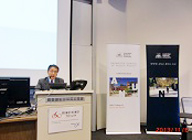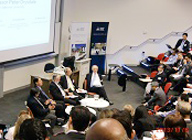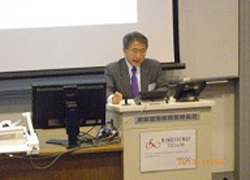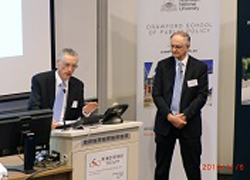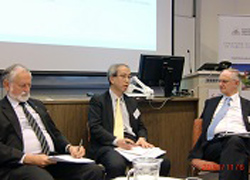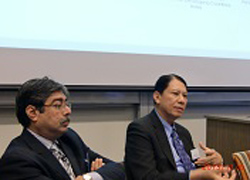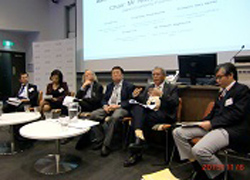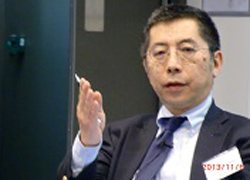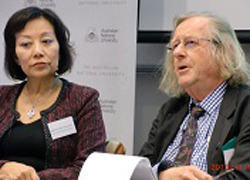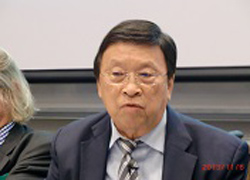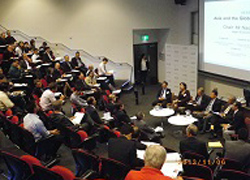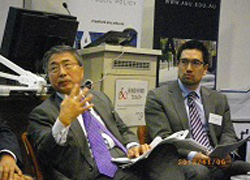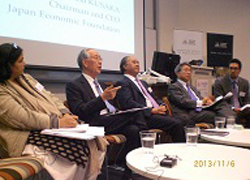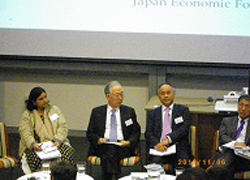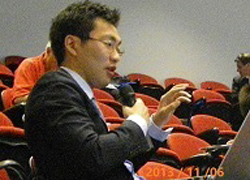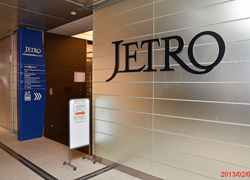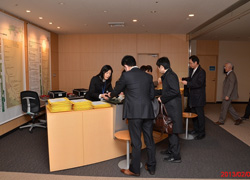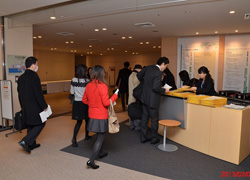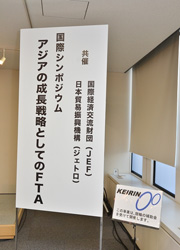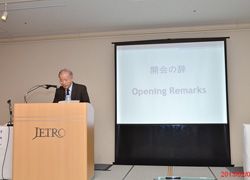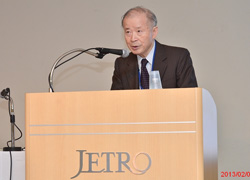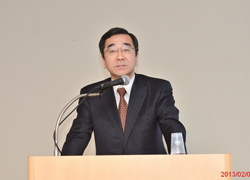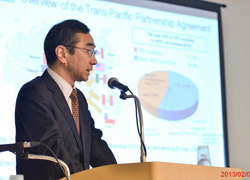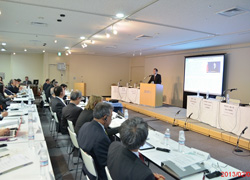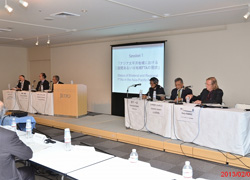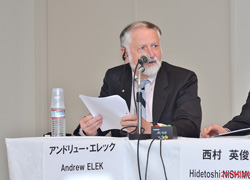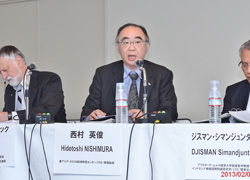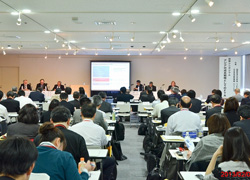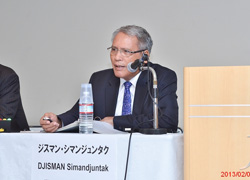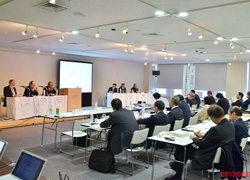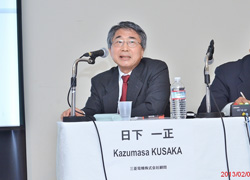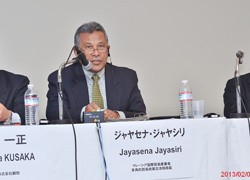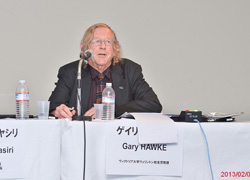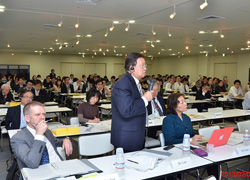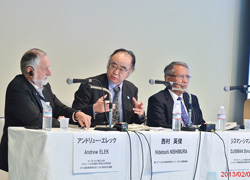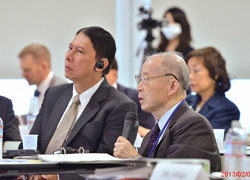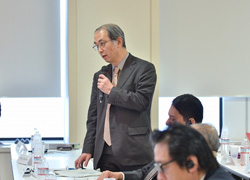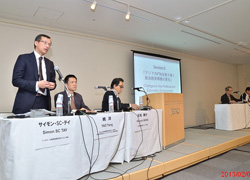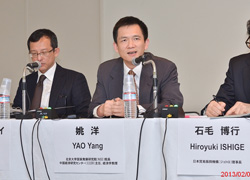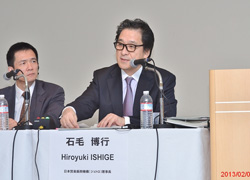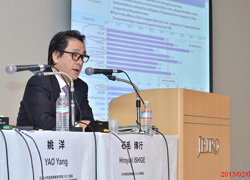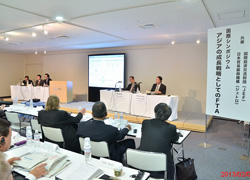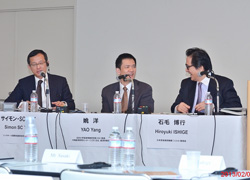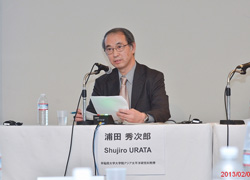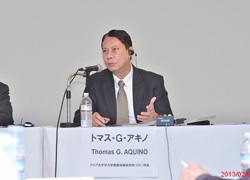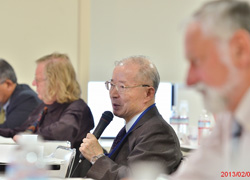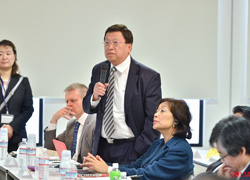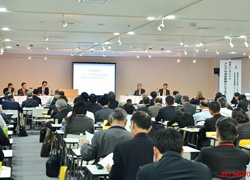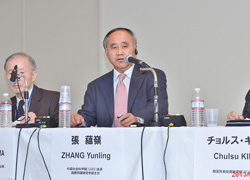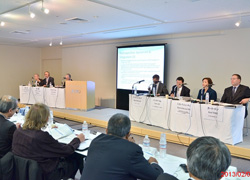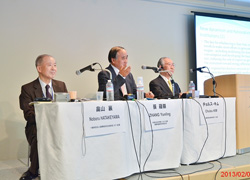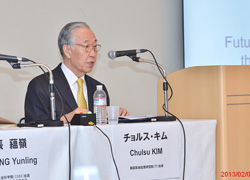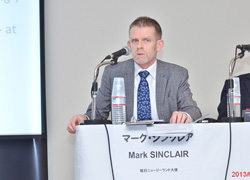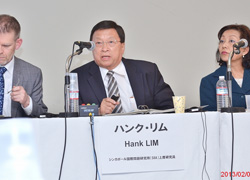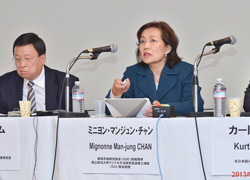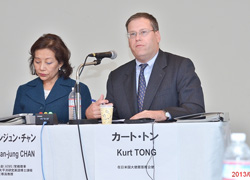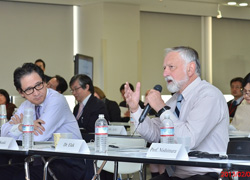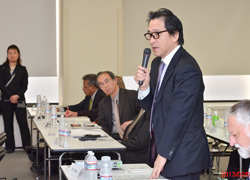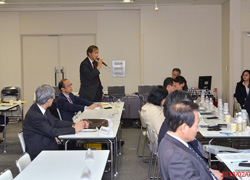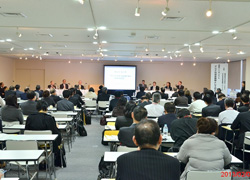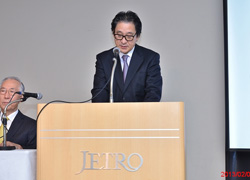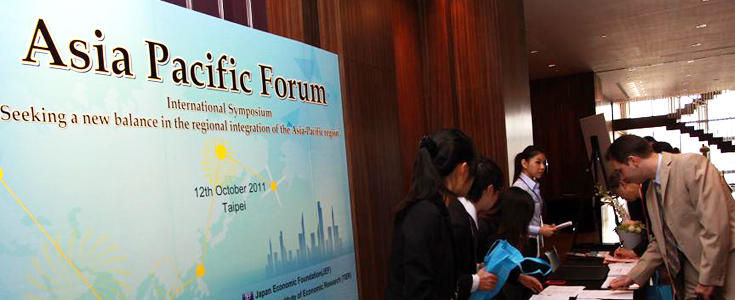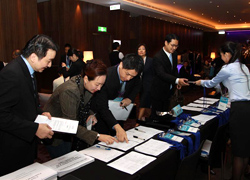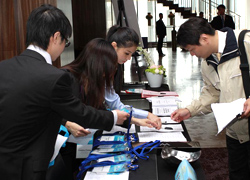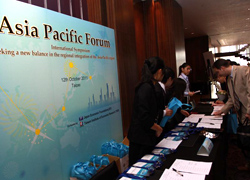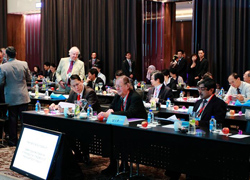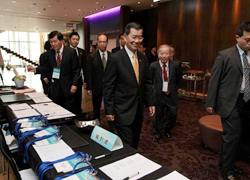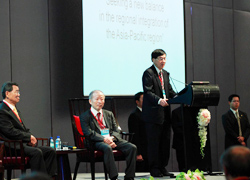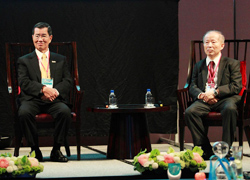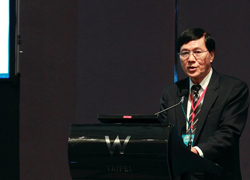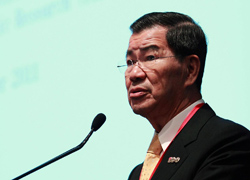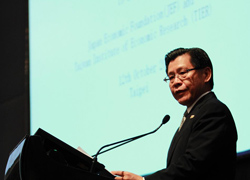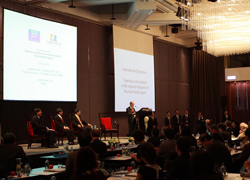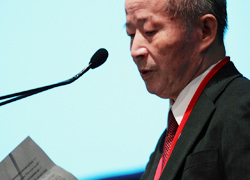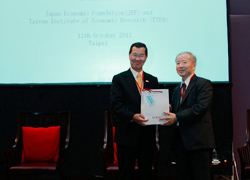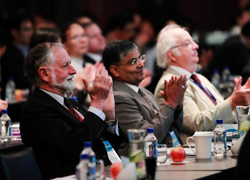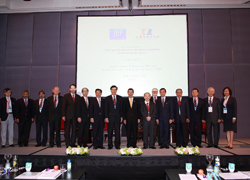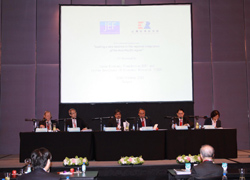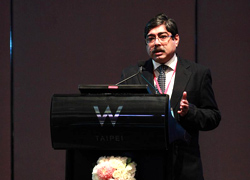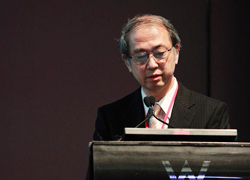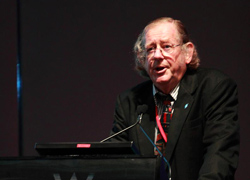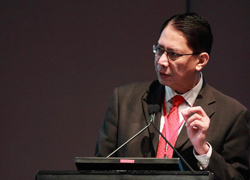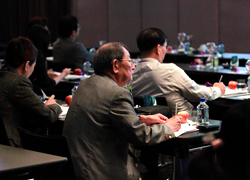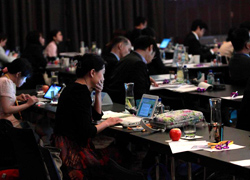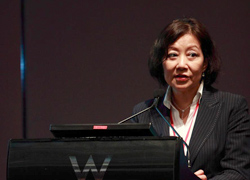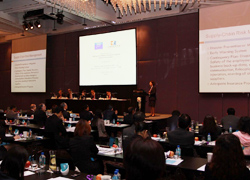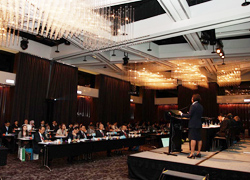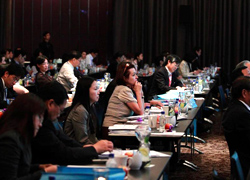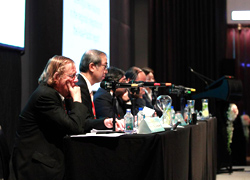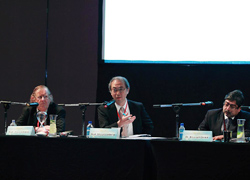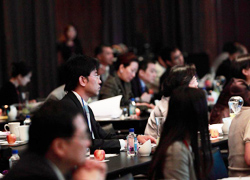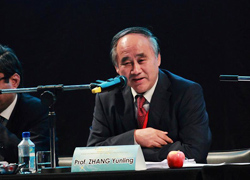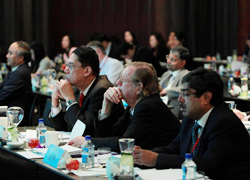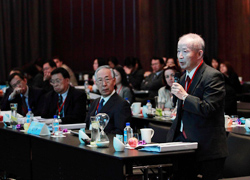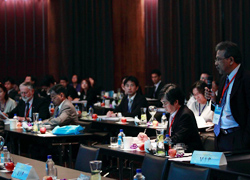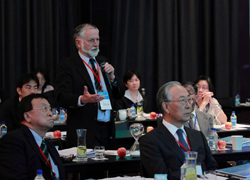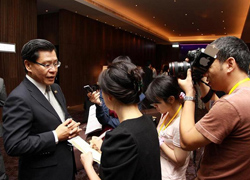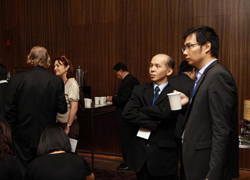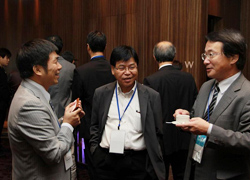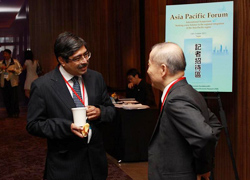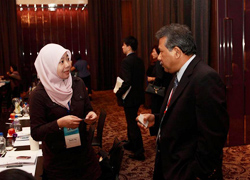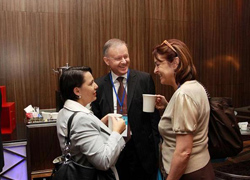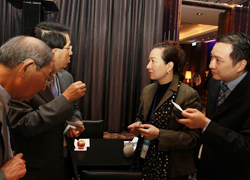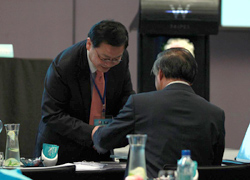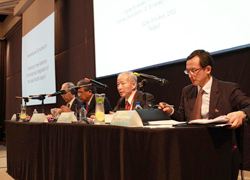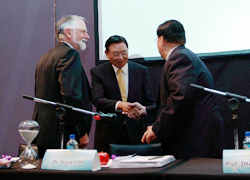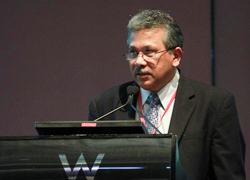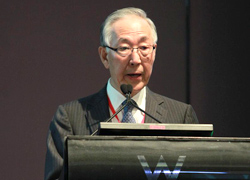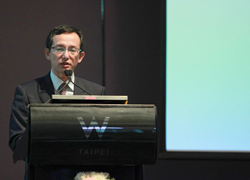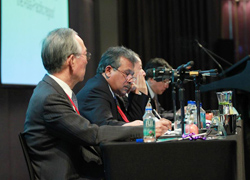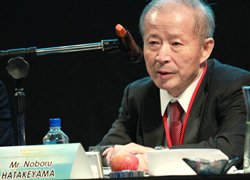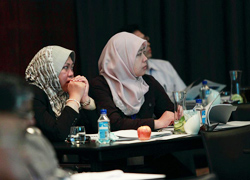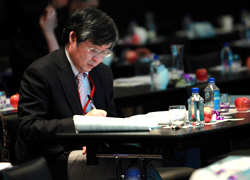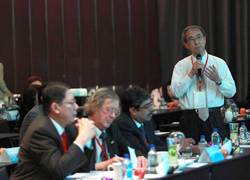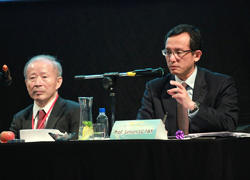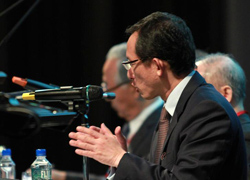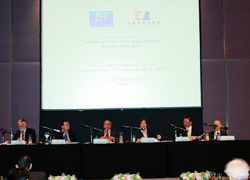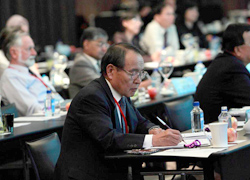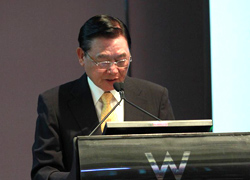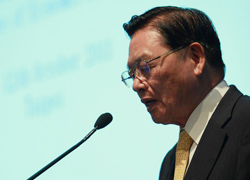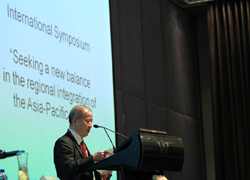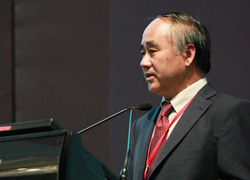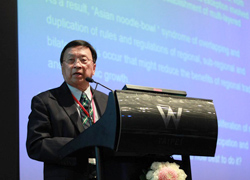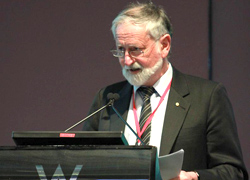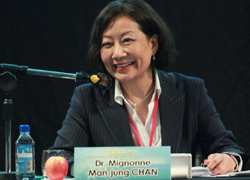| Date |
February 4-5, 2013
|
| Venue |
Japan External Trade Organization (JETRO) Headquarters
Ark Mori Building, 5F (Exhibition Hall)
12-32, Akasaka 1-chome, Minato-ku
Tokyo 107-6006
JAPAN
URL: http://www.jetro.go.jp/ |
| Sponsors |
Japan Economic Foundation(JEF)
Jiji Press Bldg. 11F, 5-15-8 Ginza
Chuo-ku, Tokyo 104-0061
Japan
TEL: +81(3)5565-4824
FAX: +81(3)5565-4828
URL: http://www.jef.or.jp
Japan External Trade Organization (JETRO)
Ark Mori Building, 6F
12-32, Akasaka 1-chome, Minato-ku
Tokyo 107-6006
JAPAN
URL: http://www.jetro.go.jp/ |
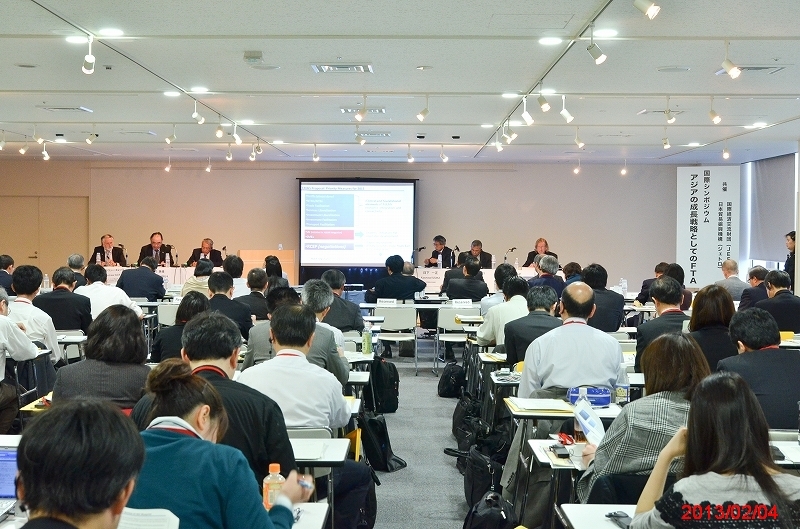
More Pictures
Topics"FTAs as a Growth Strategy for Asia"
Program
Keynote Address byMr. Nobuhiko SASAKI, Vice-Minister for International Affairs, Ministry of Economy, Trade and Industry (METI) of Japan
Recent Topics on Japan's Trade Policy
Session 1: Status of Bilateral and Regional FTAs in the Asia-Pacific Regiona. Overview: Taking stock of the state of recent FTAs in the Asia-Pacific region
b. Focused discussions
i. Assessment of regional FTAs such as the TPP, RCEP, and China-Japan-South Korea FTA
ii. Assessment of FTAs linking the Asia-Pacific region with outside entities, particularly the EU (Japan-EU, South Korea-EU, U.S.-EU, etc.)
ModeratorDr. Andrew ELEK, Research Fellow, Crawford School of Public Policy, Australian National University and The inaugural chairman of APEC Senior Officials Meeting (SOM)
187th_special_article02
Indonesia and APEC 2013, IQ Jan 2013
Presenters- Prof. Hidetoshi NISHIMURA, Executive Director, Economic Research Institute for ASEAN and East Asia (ERIA)
JEF-JETRO Symposium_Presentation_ERIA_final
- Prof. DJISMAN Simandjuntak, Professor of Business Economics, Prasetiya Mulya Business School and Chairman, Board of Directors, CSIS Foundation
eastasiaJEFJan13
JEFFeb13
- Mr. Kazumasa KUSAKA, Corporate Adviser, Mitsubishi Electric Corporation (Former Vice-Minister for International Affairs, Ministry of Economy, Trade and Industry (METI) of Japan)
asiaFTAkusaka
- Mr. Jayasena JAYASIRI, Senior Director, Multilateral Trade Policy and Negotiations, Ministry of International Trade and Industry of Malaysia
1-4_Jayasiri
- Prof. Gary HAWKE, Emeritus Professor, Victoria University of Wellington
Bilateral & Regional FTAs
JEF Tokyo Presentation1
Session 2: Changes in the Political and Economic Environment Which Affect FTAs in Asiaa. Overview: Analysis and assessment of factors influencing FTAs and other free trade systems
b. Focused discussions
i. Impact of the EU currency crisis on the economy of the Asia-Pacific region
ii. How to evaluate the impact of recessionary fears on the global economy and on the economy of the Asia-Pacific region
iii. How to evaluate the impact of recent changes in the international political situation involving Japan, China, and South Korea on trade and the economy
ModeratorProf. Simon SC TAY, Chairman, Singapore Institute of International Affairs (SIIA)
Presenters- Prof. YAO Yang Dean, National School of Development (NSD) and Professor, Director, China Center for Economic Research (CCER), Peking University
Yao Yang
- Mr. Hiroyuki ISHIGE, Chairman and CEO, Japan External Trade Organization (JETRO) (Former Vice-Minister for International Affairs, Ministry of Economy, Trade and Industry (METI) of Japan)
Global Supply Chains and Region-wide FTAs
- Prof. Shujiro URATA, C Professor of International Economics, Graduate School of Asia-Pacific Studies, Waseda University
JEF Conference February 4-5
- Dr. Thomas G. AQUINO Senior Fellow, Center for Research and Communications, University of Asia and the Pacific (Former Senior Undersecretary, Department of Trade and Industry of the Republic of Philippines)
Session 2_FTA as a Growth Strategy for Asia JEF 2013
Session 3: Future Prospects for FTAs in the Asia-Pacific Regiona. Overview: Prospects for trade liberalization in the Asia-Pacific region (TPP, RCEP, China-Japan-South Korea FTA, FTAAP, etc.)
b. Focused discussions (key issues to influence future prospects)
i. Development of FTAs to assure the stable supply of resources (how to deal with export restrictions) As import liberalization proceeds apace, export restrictions remain in force, giving rise to fears that this key area of regulation will be left behind in the liberalization process.
ii. How to redefine the concept of national borders in trade reform International dumping and domestic dumping should be ideally treated in the same manner.
iii. Fairness in terms of opportunities to participate in FTAs such as the RCEP in the Asia-Pacific Region Will inequality in terms of opportunities act as a negative factor for regional revitalization?
ModeratorMr. Noboru HATAKEYAMA, Chairman and CEO, Japan Economic Foundation (JEF) (Former Vice-Minister for International Affairs, Ministry of International Trade and Industry (MITI (METI as of now)) of Japan)
Presenters- Prof. ZHANG Yunling, Academy Member, Director of International Studies, Chinese Academy of Social Sciences (CASS)
Rerebuilding1301
- Dr. Chulsu KIM, Chairman, Institute for Trade & Investment (ITI), Lee International (Former Minister of Trade, Industry and Energy of the Republic of Korea)
JEF_Future Prospects for FTAs
- Amb. Mark SINCLAIR, The New Zealand Ambassador to Japan
Sinclair_JEF seminar
- Dr. Hank LIM, Senior Research Fellow, Singapore Institute of International Affairs (SIIA)
FutureProspectsforFTAsintheAsia-PacificRegion_session3
- Dr. Mignonne Man-jung CHAN, Executive Board Member, Association of the Emerging Market Studies (AEMS) and Visiting Professor, International Doctoral Program in Asia-Pacific Studies (IDAS), National Chengchi University
Future Prospect of FTAs for the Asia-Pacific Region
- Mr. Kurt TONG, Deputy Chief of Mission, The Embassy of the United States
ParticipantsList
SummarySummary (English)Summary (Japanese)
Chairman's SpeechOpening Remarks by Mr. Hatakeyama (February 4, 2013@JEF-JETRO International Symposium)
Good Morning Ladies and Gentlemen. Mr. Nobuhiko SASAKI, Vice-Minister for International Affairs, from the Ministry of Economy, Trade and Industry, speakers present from other countries, Ladies and gentlemen. I would like to welcome you all for participating in the forum. This forum, when I became Chairman of Japan Economic Foundation in 2003, was first held in Singapore as a place to promote FTA discussions in the Asia-Pacific region. Later, this forum has been held taking in turns in different countries and region. This year, we celebrate its 11th forum, now being held in Tokyo jointly with JETRO. In holding this forum, we had cooperation from METI, JETRO and other related organizations. I would like to extend my deepest gratitude for each and every one of these organizations.
Looking at the global economy last year, in Europe, financial crisis caused a lot of uncertainties to the future of global economy. The European financial crisis, as a result of successive measures taken by EU authority, in particular, with the establishment of ESM, European Stability Mechanism in October last year, aimed at strengthening support to the Euro zone, led to the stabilization of the situation. But still the bipolarization between north and south of EU has not yet been resolved. So, the future of the situation in EU is still worth attention.
In the U.S., towards the end of the year, the "fiscal cliff" was a focus of the attention in the world. From the end of the year to the beginning of this year, thanks to the efforts of President Obama and the both parties, "falling from the cliff" was avoided for a while. It was avoided by the two months-extension of budget sequester. However, since this is a provisional "emergency measure", the world is watching what measures will be taken in February which is the end of this extension.
Although the BRICs countries are expected to pull the global economy in the future, Brazilian economy is stagnant and Chinese economy growth is also slowing down. So, what measures would be taken against that is another point of notice.
In case of Japan, as you know, with the establishment of Abe administration, the 2% of inflation target was introduced to overcome deflation. Based on that, "the tree arrows policy" that is fiscal policy, financial policy and growth strategy, will be put in place to vitalize the economy. Market is positively responding to this policy. The prices of stocks are going up and in the foreign exchange market, yen rate is now converting to a more appropriate level. I am also greatly looking forward to this policy.
Now, I want to touch upon Japanese trade which is strongly affected by foreign exchange rate.
Looking at trade balance, Japan recorded a deficit of 2.6 trillion yen, and that of last year was a deficit of 6.9 trillion yen. Weakening of yen is good news for exports from Japan, but, at the same time, it will push up the import value reflecting increased cost of fossil fuel etc.
Under that situation, question is whether it is possible to further expand exports. I believe that active promotion of FTAs with other countries is necessary. Currently, there are more than 220 FTAs enacted in the world. As of the end of November last year, Japan had 13 FTAs with twelve countries and one region. In addition, negotiations are going on with six countries including Australia and Canada. And also, there was an official announcement to start governmental negotiations of Japan-EU and China-Japan-Korea FTAs.
But, when we look at the FTA coverage ratio among total export, it is still 19% in Japan. Compared to the extremely high ratio of Mexico (92%) and of Chile (90%), the ratio of Japan is extremely low. It is even lower compared to 45% of United States and 37% of Korea. Korea is now negotiating FTA with China. When this FTA is realized, I believe the ratio of Korea will further go up.
Currently, we are seeing a slow-down of the global economic growth. Every country is very active in promoting FTA to vitalize their economy. Based on this situation, we would like to have a concentrated discussion on the future of FTAs in the Asia-Pacific region with authorities of FTAs and those actually in charge of negotiations of FTAs from eleven countries and one international organization.
At the 2010 APEC, there was an agreement that TPP, which is now a focus of our attention, and ASEAN + 6 then which is now called "RCEP" should aim at a comprehensive free trade agreement at APEC ultimately. However, when we look at the countries or regions composing the membership, Taiwan is a member of APEC but it is not covered by RCEP. India is under RCEP but is not a member of APEC. So I hope we could have more discussions on this membership issue, too.
I hope the meeting of today will be informative to you in conducting your future businesses.
Thank you very much for your kind attention.
2016. NOVEMBER
2015. NOVEMBER
2014. NOVEMBER
2013. NOVEMBER
2013. FEBRUARY
2011. OCTOBER
2010. OCTOBER
2009. SEPTEMBER
2008. OCTOBER
2007. NOVEMBER
2006. NOVEMBER
2005. OCTOBER
2005. FEBRUARY
2004. JANUARY
2003. MARCH
